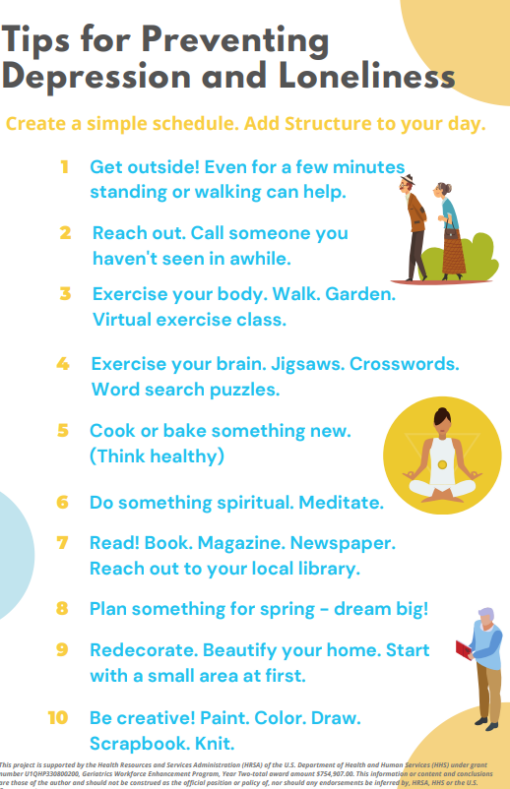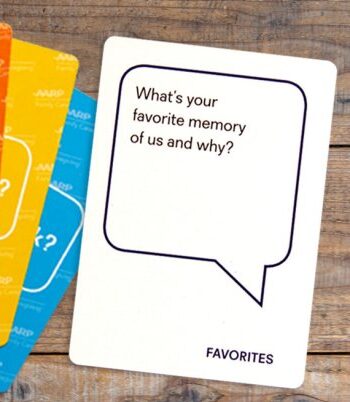AgingME curated this collection of resources from AgingME partners and the national Geriatrics Workforce Enhancement Program network.
Technology Tips for Living Well with Dementia
This sheet was co-created with the National Council of Dementia Minds, and aims to assist in creating a more dementia-inclusive environment in healthcare.This handout has different apps and technology that can be useful for people living with dementia, as well as for their friends, family, and care partners.
Protect Your Loved Ones From Falling
Every second of every day, an older adult falls. Many of these falls cause injuries, loss of independence, and in some cases, death. Falls can be prevented. As a family caregiver, you can help.
Depression in Older Adults: Know the Signs, Ask for Help
Depression is:
- NOT a normal part of aging
- NOT the same thing as normal grief after loss
- NOT a sign of weakness or being ‘crazy’
Care To Talk?: Ways to Spark Conversations When Caring for a Loved One
The role of a family caregiver is complex and challenging. Whether you’re caring for a parent, spouse, relative, close friend or neighbor, the number of tasks can sometimes feel overwhelming. To compound this, family caregivers often lack the skills to start or sustain vital conversations with those they care for because these discussions are often difficult and uncomfortable. That’s why AARP created Care To Talk?TM conversation cards (Family edition) — a 52-card deck of discussion topics available in English and Spanish meant to spark meaningful dialogue between caregivers and care recipients and address important life issues and long-term healthcare plans.
Dementia Training: First Responders and Care Partners
The Florida State University College of Medicine is excited to share a dementia training
resource that the GWEP REACH Program, the Dementia Care and Cure Initiative
(specifically TMH Memory Disorder clinic and the Alzheimer’s Project), and Aging
Advocate have created to educate first responders and family care partners. This 22
minute video explains the basics of dementia, communication tips and supportive
interventions, critical thinking strategies, and ways that families can be prepared when
crisis situations occur. This content is especially relevant during times of restricted
support for persons with dementia due to COVID-19.



